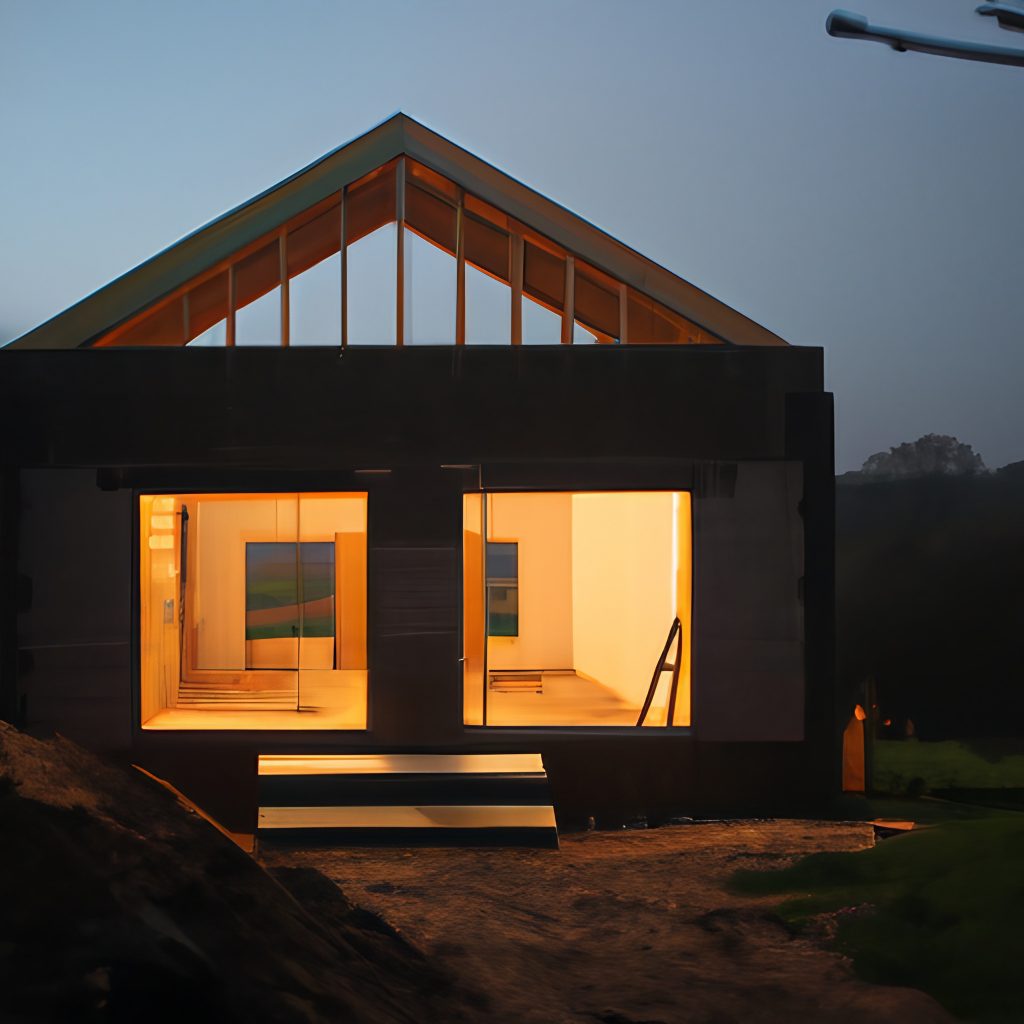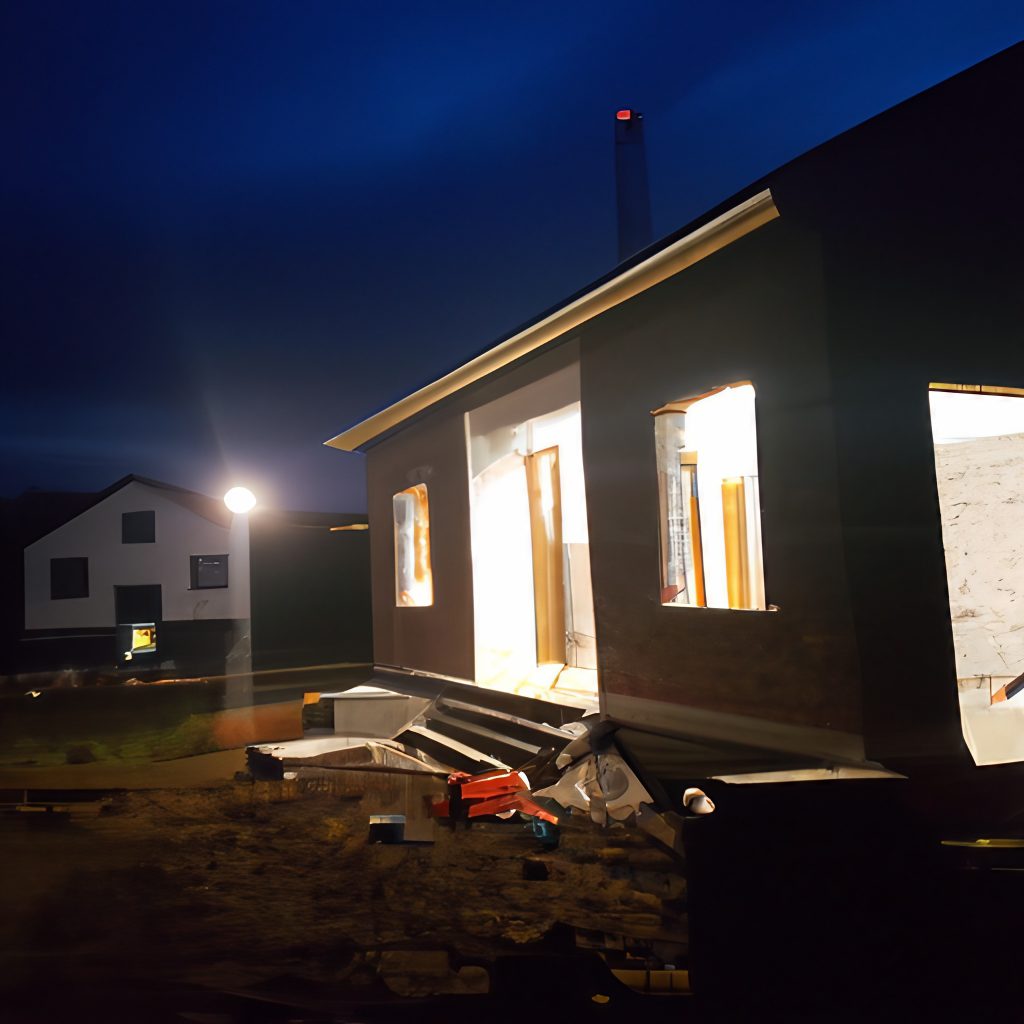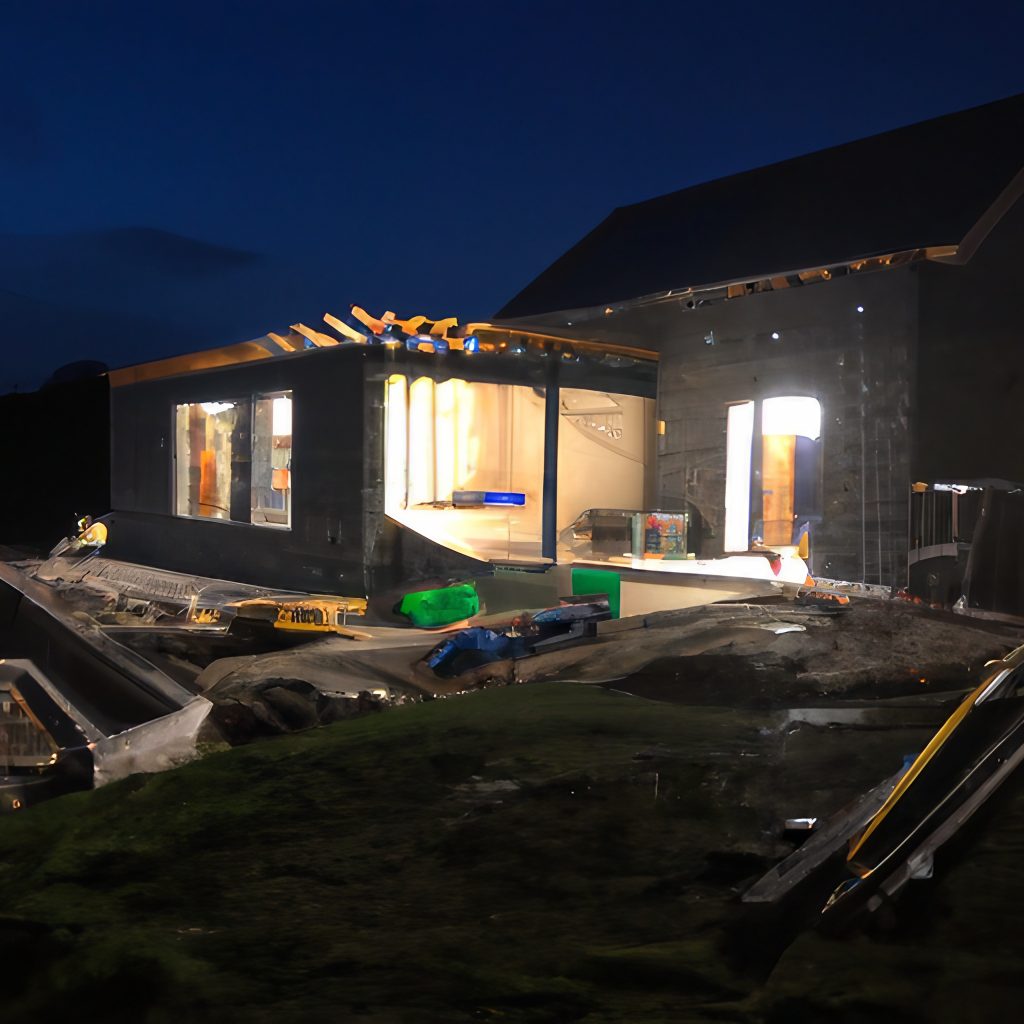Self-building your own home. The Benefits!
Are you looking for a way to take control of your home-building project and unlock the benefits of self-building? If so, this blog article is for you! In it, we will discuss how to take control of your home-building project, what you need to know before starting a DIY build, and strategies for achieving a successful self-build. We hope that by the end of this article, you’ll have all the information necessary to make an informed decision about whether or not self-building is right for you. So let’s get started! We want to talk about Self-building your own home. The Benefits!
Building your own home is an exciting and rewarding experience. It can also be a daunting task, as there are many steps involved in the process. But with careful planning and preparation, it’s possible to create a beautiful custom-built home that you will be proud of for years to come.
The first step in self-building your own home is deciding on the type of house you want to build. Consider factors such as size, style, location and budget when making this decision. Once you have decided on the type of house you want to build, research local building codes and regulations so that your project meets all necessary requirements before beginning construction work. Additionally, consider hiring an architect or engineer who specializes in residential design if needed for assistance with creating plans for your new home or obtaining permits from local authorities if required by law where you live.
Next comes selecting materials for construction purposes such as lumber or concrete blocks depending on what kind of structure will best suit your needs; this should be done after consulting with professionals about which material would work best based on the climate conditions where the house will be built too since some materials may not hold up well under certain weather conditions over time without proper maintenance being performed regularly throughout its lifespan.
Once these decisions have been made it’s time to begin laying out foundations followed by framing walls according to plan specifications – make sure any measurements taken during this stage are accurate so everything fits together properly once completed! Afterwards comes installing electrical wiring systems along with plumbing pipes before moving onto roofing installation then finally finishing touches like painting interior/exterior surfaces adding insulation etcetera (depending upon individual preference). Finally don’t forget about landscaping around newly constructed property either – adding trees shrubs flower beds etcetera can really help enhance curb appeal while providing additional privacy too!
Building one’s own dream home requires patience dedication commitment and most importantly knowledge; researching extensively beforehand taking advice from experienced professionals when needed following safety guidelines closely throughout the entire process ensuring quality craftsmanship every step along the way all contribute towards the successful completed project. With the right attitude and determination, anyone can become their very own general contractor completing their very own custom-designed residence!
Unlock the Benefits of Self-Building Your Home

Self-building your own home can be a daunting task, but it is also an incredibly rewarding experience. Not only do you get to design and build the house of your dreams, but you also have the chance to unlock some amazing benefits that come with self-building. From saving money on labour costs to having complete control over every aspect of the project, there are many advantages that come with taking on this challenge yourself.
One of the main benefits of self-building is cost savings. By doing all or most of the work yourself, you will save significantly on labour costs compared to hiring contractors for each stage in construction. This means more money in your pocket at completion and a larger budget for interior design and decorating once everything else is finished! Additionally, since you’re doing all or most of the work yourself, any mistakes made along the way won’t cost as much as they would if someone else were involved – so don’t be afraid to make mistakes while learning how things go together!
Another great benefit of self-building is having total control over every aspect from start to finish – something not possible when working with contractors who may have their own ideas about what should be done differently than yours. You get full creative freedom when it comes time to designing layouts and selecting materials; no one knows better than you what kind of look and feel works best in your home! And since everything will already fit perfectly together before installation begins (since it was designed by YOU), there won’t be any surprises during construction either – just smooth sailing until completion day arrives!
Finally, another major advantage that comes with self-building is being able to learn new skills along the way – like carpentry or plumbing – which can then be used again down the line if needed (or even sold!). With enough determination anyone can become proficient at these tasks given enough practice; plus knowing how things go together gives peace of mind knowing future repairs/maintenance won’t require calling out professionals unless absolutely necessary!
How to Take Control of Your Home Building Project

Building your own home can be a daunting task, but with the right planning and preparation, it can also be an incredibly rewarding experience. Taking control of your home-building project is essential for ensuring that you get the results you want without any unnecessary delays or costs. Here are some tips to help you take control of your self-building project:
1. Create a detailed plan – Before starting any construction work, create a detailed plan outlining all aspects of the build from start to finish. This will include everything from budgeting and timelines through to materials and design elements. Having this blueprint in place will ensure that everyone involved in the project knows exactly what needs to be done at each stage so there’s no confusion or misunderstanding down the line.
2. Research local regulations – Make sure that you research local regulations before beginning construction as these may have an impact on how much work needs doing or even if certain features are allowed on your property at all! Knowing what’s required ahead of time will save time, money and stress further down the line when it comes to getting approval for certain features such as plumbing systems etc.
3. Hire experienced professionals – When hiring contractors make sure they have plenty of experience working on similar projects so they know exactly what needs doing and how best to do it efficiently without compromising quality standards along the way! Don’t just go with whoever offers up their services cheapest; instead, look into their credentials thoroughly before making any decisions about who should carry out which tasks during construction works.
4. Stay organized – Staying organized throughout every step is key when taking control over a self-build project; this means keeping track of budgets, materials used/needed, deadlines etc.. It’s easy enough for things like this to slip through the cracks if not managed properly so make sure someone (or yourself) is always aware of the progress made/required across each area being worked upon!
5. Keep communication open – Communication between yourself, contractors & other parties involved should remain open throughout; don’t let anything fall by wayside due to lack of information exchange! Keeping everyone informed & updated regularly helps keep the momentum going while also avoiding potential issues arising due to miscommunication later down line!
Taking control over your own home building project doesn’t need to be overwhelmingly provided that proper planning takes place beforehand followed by regular organization & communication between those involved in order to achieve the desired outcome within set timeframe /budget constraints!
What You Need to Know Before Starting a DIY Build

If you’ve ever dreamed of building your own home, now may be the perfect time to make that dream a reality. Self-building is becoming increasingly popular as people look for ways to create their ideal living space without having to rely on contractors and developers. However, before you start any DIY build project there are some important things you need to know in order to ensure it goes smoothly and successfully.
First off, it’s essential that you have a clear plan in place from the outset – this will help keep costs down and prevent costly mistakes further down the line. You should also consider getting professional advice from an architect or surveyor who can advise on local regulations and provide detailed plans for your building project. Additionally, don’t forget about planning permission – if required by law then failure to obtain this could result in hefty fines or even legal action being taken against you!
It’s also important that budgeting is at the forefront of your mind when self-building; materials can add up quickly so make sure all costs are accounted for ahead of time with allowances made for unexpected expenses too! Finally, remember that self-building isn’t just about construction work; there’s plenty more involved such as interior design decisions which require careful consideration too – after all, no one wants an unfinished house with mismatched furniture!
Overall while self-building can be an incredibly rewarding experience it does come with its own set of challenges so make sure you do plenty of research beforehand and get professional advice where necessary – only then will your dream become a reality!
Strategies for Achieving a Successful Self-Build

Self-building your own home can be an incredibly rewarding experience, but it is also a complex process that requires careful planning and execution. To ensure the success of your self-build project, there are several strategies you should consider.
First, do plenty of research on the building regulations in your area as well as any other laws or restrictions that may apply to self-building projects. This will help you understand what is required for a successful build and avoid costly mistakes down the line. Additionally, make sure to create a realistic budget for yourself so that you know exactly how much money needs to be allocated for each step of the process.
Second, hire experienced professionals who can provide valuable advice throughout all stages of construction such as architects and engineers. These individuals have years of expertise in their respective fields which can prove invaluable when dealing with technical issues or making important decisions about materials and design elements during construction.
Thirdly, take advantage of modern technology by using 3D modelling software to visualise different aspects of your project before beginning work on site; this will allow you to make changes quickly without having wasted time or resources due to incorrect assumptions made at earlier stages in the build process. Finally, don’t forget about safety – always wear protective gear while working onsite and follow all relevant health & safety guidelines closely.
By following these strategies, you’ll set yourself up for success when it comes time to start building – good luck! Matrix Structures is here to help!






